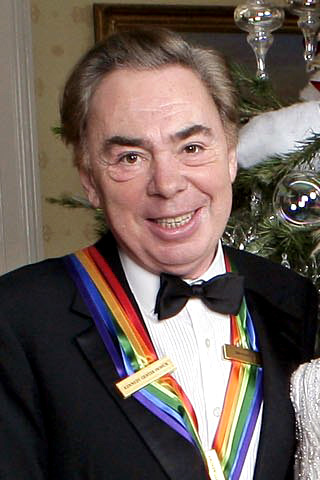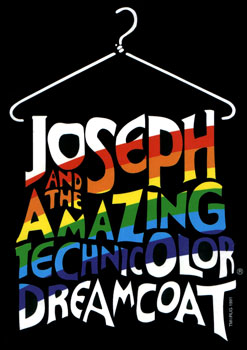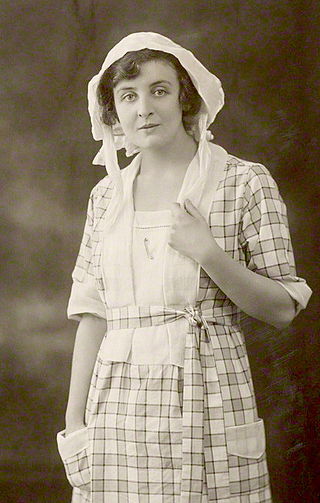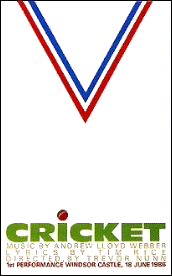
Andrew Lloyd Webber, Baron Lloyd-Webber is an English composer and impresario of musical theatre. Several of his musicals have run for more than a decade both in the West End and on Broadway. He has composed 21 musicals, a song cycle, a set of variations, two film scores, and a Latin Requiem Mass.

Thomas John Barnardo was an Irish-born, Christian philanthropist and founder and director of homes for poor and deprived children. From the foundation of the first Barnardo's home in 1867 to the date of Barnardo's death, nearly 60,000 children had been taken in.

Sir Timothy Miles Bindon Rice is an English lyricist and author. He is best known for his collaborations with Andrew Lloyd Webber, with whom he wrote, among other shows, Joseph and the Amazing Technicolor Dreamcoat, Jesus Christ Superstar, and Evita; with Björn Ulvaeus and Benny Andersson of ABBA, with whom he wrote Chess; with Elton John, with whom he wrote Aida; and with Disney on Aladdin, the Lion King, both the stage adaptation of Beauty and the Beast and the live-action film adaption. He also wrote lyrics for the Alan Menken musical King David, and for DreamWorks Animation's The Road to El Dorado.

Anthony Ashley-Cooper, 7th Earl of Shaftesbury, styled Lord Ashley from 1811 to 1851, was a British Tory politician, philanthropist, and social reformer. He was the eldest son of the 6th Earl of Shaftesbury and Lady Anne Spencer, and elder brother of Henry Ashley, MP. A social reformer who was called the "Poor Man's Earl", he campaigned for better working conditions, reform to lunacy laws, education and the limitation of child labour. He was also an early supporter of the Zionist movement and the YMCA and a leading figure in the evangelical movement in the Church of England.

Joseph and the Amazing Technicolor Dreamcoat is a sung-through musical with lyrics by Tim Rice and music by Andrew Lloyd Webber, based on the character of Joseph from the Bible's Book of Genesis. This was the first Lloyd Webber and Rice musical to be performed publicly; their first collaboration, The Likes of Us, written in 1965, was not performed until 2005. Its family-friendly retelling of Joseph, familiar themes, and catchy music have resulted in numerous stagings. According to the owner of the copyright, the Really Useful Group, by 2008 more than 20,000 schools and amateur theatre groups had staged productions.

Aspects of Love is a musical with music and book by Andrew Lloyd Webber, and lyrics by Don Black and Charles Hart. It is based on the 1955 novella of the same name by David Garnett.

Tell Me on a Sunday is a musical with music by Andrew Lloyd Webber and lyrics by Don Black. A one-woman show, it has been performed by a number of female singers/actors, most notably Marti Webb and Bernadette Peters. A one-act song cycle, it tells the story of an ordinary English girl from Muswell Hill, who journeys to the United States in search of love. Her romantic misadventures begin in New York City, lead her to Hollywood, and eventually take her back to Manhattan.

Arthur Lloyd was a Scottish singer, songwriter, comedian and impresario. Lloyd was the first prolific and successful singer-songwriter for music hall in the United Kingdom. He wrote more than 1,000 songs, many of which were performed by himself and others. One of his compositions, Not for Joseph was the first comic song to sell more than 100,000 copies. He established his own theatre company, opened a theatre in London, performed for royalty and toured extensively, touring North America in 1893–94.

By Jeeves, originally Jeeves, is a musical with music by Andrew Lloyd Webber, and lyrics and book by Alan Ayckbourn. It is based on the series of novels and short stories by P. G. Wodehouse that centre around the character of Bertie Wooster and his loyal valet, Jeeves.

Ragged schools were charitable organisations dedicated to the free education of destitute children in 19th-century Britain. The schools were developed in working-class districts and intended for society's most impoverished youngsters who, it was argued, were often excluded from Sunday School education because of their unkempt appearance and often challenging behaviour. After a few such schools were set up in the early 19th century by individual reformers, the London Ragged School Union was established in April 1844 to combine resources in the city, providing free education, food, clothing, lodging, and other home missionary services for poor children. Although the Union did not extend beyond London, its publications and pamphlets helped spread ragged school ideals across the country before they were phased out by the final decades of the 19th century.
Madeleine Astrid Gurdon, Baroness Lloyd-Webber is an English horsewoman. She is married to composer and theatrical impresario Andrew Lloyd Webber.

Jenny Connor is a fictional character from the British ITV soap opera Coronation Street, played by Sally Ann Matthews. She made her first appearance on-screen on 6 January 1986. Originally fostered by Rita Fairclough, she has been featured in storylines including her troubled relationship with her father and Rita's partner, Alan Bradley, his death when he is killed in a tram accident after chasing Rita in Blackpool and a brief underage romance with married man Robert Weston, their separation in 1991 led to Jenny leaving Weatherfield on 1 March 1991.

Variations is a classical and rock fusion album. The music was composed by Andrew Lloyd Webber and performed by his younger brother, the cellist Julian Lloyd Webber.

Hessy Doris Lloyd was an English–American film and stage actress. She is perhaps best known for her roles in The Time Machine (1960) and The Sound of Music (1965). Lloyd appeared in two Academy Award winners and four other nominees.
Johnny on the Run is a 1953 adventure film directed by Lewis Gilbert. It was produced by the Children's Film Foundation
Nancy Sullivan is an English actress and singer.
The Sydmonton Festival is a summer arts festival presented in a deconsecrated 16th century chapel on the grounds of Sydmonton Court, the country estate of Andrew Lloyd Webber. It is in Hampshire, located approximately 85 kilometres southwest of London, and was established in September 1975. Its purpose is to introduce new works to a private audience of individuals connected with theatre, television, and film in order to determine their future potential and viable commercialism.

The Ainslie Tavern Bond was a document signed on about 20 April 1567 by a number of Scottish bishops and nobles. The bond approved the Earl of Bothwell's acquittal on 12 April of implication in the murder of Lord Darnley, recommended him as an appropriate husband for Mary, Queen of Scots, and pledged to assist in defending such a marriage.

Cricket, also called Cricket (Hearts and Wickets), is a short musical with music by Andrew Lloyd Webber, and lyrics and book by Tim Rice. It was commissioned for Queen Elizabeth's 60th birthday celebration, and was first performed at Windsor Castle on 18 June 1986.

The Memorial to Dr Barnardo by George Frampton, at Barkingside in the London Borough of Redbridge, commemorates the founder of the Barnardo's children's charity. Born in Dublin into a Sephardic Jewish family, Thomas John Barnardo moved to the East End of London in 1866 where he established a chain of orphanages that developed into the Barnardo's charity. He died in 1905 and, in a move unusual for the time, was cremated; his ashes were interred in front of Cairn's House, the original building of his Barkingside children's village. In 1908, a memorial was raised on the site, the sculpture being undertaken by George Frampton, who worked without a fee. The memorial was designated a Grade II listed structure in 1979 and upgraded to II* in 2010.
















